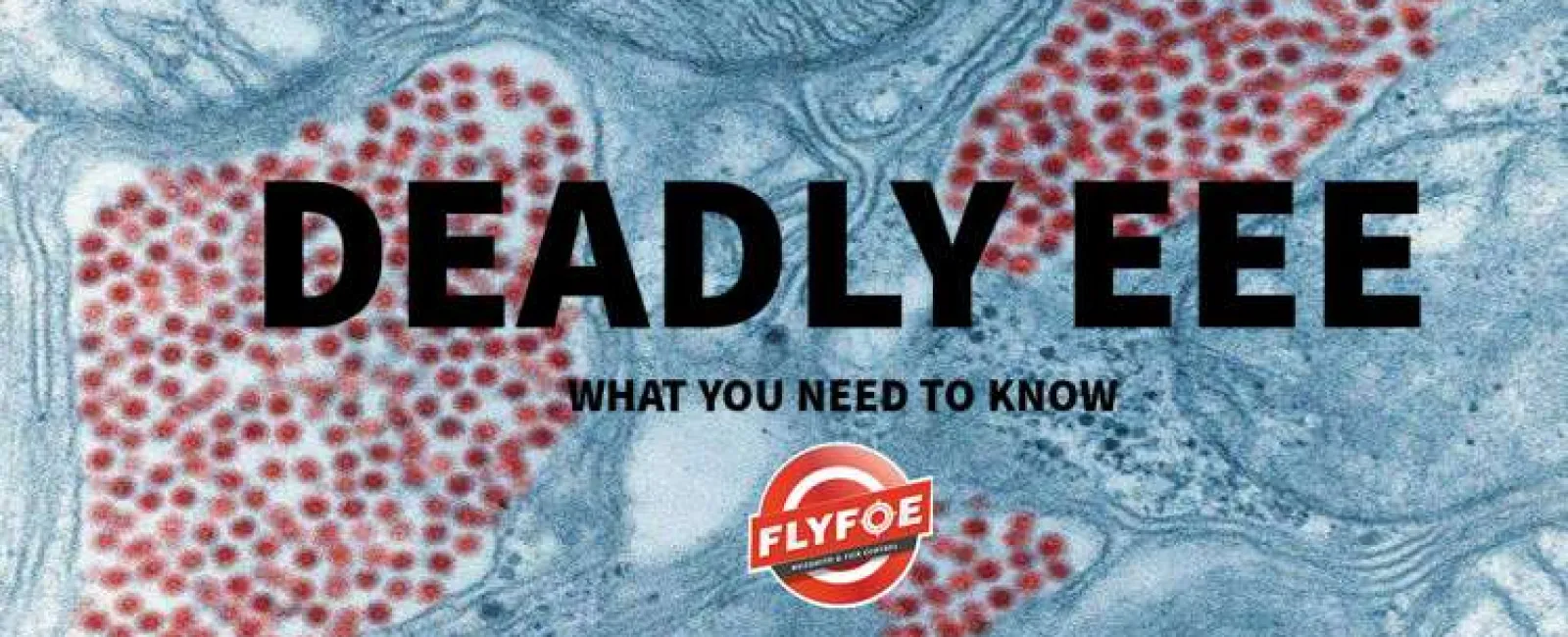12 people and several animals in Massachusetts have contracted eastern equine encephalitis or EEE this month, and 3 have died. State health department officials have also found the EEE virus in more than 300 mosquito samples and are warning residents to avoid mosquito bites.
To combat the deadly threat, the state is conducting aerial sprays in several counties deemed to have the highest risk for EEE and issued reminders to the public that the peak season when mosquitoes can transmit diseases extends through the month of September in Massachusetts. However, depending on your state climate, this season may extend even later into the year.
There have also been outbreaks of EEE in other states this summer, including Michigan, where 3 people were infected, and in states like New Jersey and Georgia, where cases were confirmed in horses. But the disease has been found in mosquitoes in even more states like Florida, Connecticut and Delaware.
What is EEE?
EEE is a dangerous mosquito-borne virus that impacts the nervous system and is fatal in one out of three cases in humans. It was first identified in 1831 in Massachusetts, when 75 horses died unexpectedly.
Even though EEE is rare, an outbreak occurs in Massachusetts every 10 to 20 years, each typically lasting two to three years. Between 2010 and 2012, nine persons were infected in the state, and four died. An average of seven human cases of the disease are reported each year in the U.S., according to the Centers for Disease Control and Prevention (CDC), with most cases in the Gulf Coast states.
It typically takes 4-10 days for symptoms to show in humans after being bitten by an infected mosquito. Those who are infected can develop two types of illness: systemic, which is the milder form, or encephalitic, which is much more dangerous because it affects the nervous system.
Those with systemic illness will develop symptoms such as chills, fever, malaise, arthralgia, and myalgia, but completely recover in one to two weeks with no long-term effects, according to the CDC. The symptoms of the encephalitic illness are severe and include fever, headache, irritability, restlessness, drowsiness, anorexia, vomiting, diarrhea, cyanosis (bluish discoloration of skin on hands and feet), convulsions, coma and, for a third of victims, death.
How to Protect Yourself and Your Family
To encourage everyone to protect themselves and their loved ones against EEE and other dangerous diseases spread by mosquitoes like West Nile Virus, Patio Patrol wants to share some of the precautions given to the public in Massachusetts.
- To avoid mosquito bites, limit your outdoor exposure between sundown and dawn when mosquitoes are the most active.
- Use insect repellants on your skin when outdoors and cover your skin with long-sleeved shirts, long pants and socks, especially in areas where mosquitoes are known to be active.
- Check window and door screens and patch holes or replace screens to keep mosquitoes out.
- Eliminate standing water around your home on uneven ground, in gutters, bird baths, toys, pots, and other objects. Mosquitoes lay their eggs in water.
Patio Patrol can help you protect your turf from the nuisance and dangers of both mosquitoes and ticks.
To show our support in our home state of Massachusetts and do our part to ensure everyone is protected, we've decided to run a special 3-for-1 campaign where new customers get three sprays in their yards for the price of one. To take advantage of this limited-time promotion, just book your sprays at www.patiopatrol.com
We've decided to run a special 3-for-1 campaign where new customers get three sprays in their yards for the price of one. To take advantage of this limited-time promotion, just book your sprays at www.patiopatrol.com


